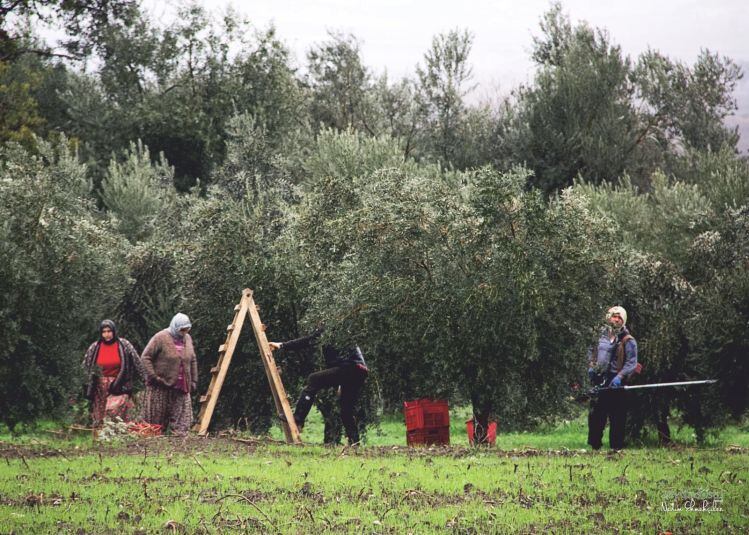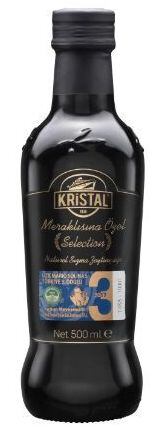As the world's fourth-largest olive oil producer behind Spain, Italy and Greece, Turkey produced 287,000 tons of olive oil in 2017/18, about 60% of which was consumed domestically and the rest stocked or exported, according to statistics from Turkey's National Olive and Olive Oil Council (NOOC). By contrast, Spain produced more than 2.5 billion tons in 2017/18; Italy around 430,000 tons; and Greece about 350,000 tons.
However, with an estimated 173 million olive trees and more than 1,200 olive oil extraction facilities across Turkey, the country's Aegean Olive and Olive Oil Exporters Association said the market had grown significantly in the last 15 years.
Davut Er, chairman of the association, said the top five export markets for Turkish olive oil were the US, Spain, Saudi Arabia, Italy and Japan.
“Currently, the US is our top market for olive oil exports. Compared to last season, our exports to the US increased by 108% in 2017/18, recording 24,000 tons, which equals to 37% of Turkey's total olive oil exports,” Er told FoodNavigator-USA.
For geographical reasons, most US exports go to the East, mainly New York, with a “limited amount” reaching California, he said.
Er said that while the US was focused on driving up its own olive oil production, especially in California, with such a huge market and “increasing tendency” to consume olive oils, a rise in domestic production alone would not be enough to meet increasing needs.
Kickstarting a promotional campaign
Er said the Aegean Olive and Olive Oil Exporters Association would kickstart a promotional campaign next year to drive interest in the US around all products made using Turkish olives and olive oil.
There are almost 100 certified native varieties of olive in Turkey, he said, presenting a plethora of different aromas and tastes and, importantly, Turkish law and regulation prohibited blending with other oils.
However, Er said very little of this was known in the US because Turkish olive oil is predominantly imported by USA bottlers that don't label Turkey as the origin on final products.
“USA consumers are not aware they are consuming Turkish olive oil,” he said.
Chris Dologh, Turkey's representative in the International Olive Council (IOC) and general manager/family member of Kristal Turkey – the country's oldest branded olive oil, said the future had to be about presenting high-quality varietals and being clear about their Turkish origin.
Dologh said Kristal started a project three years ago to identify regional characteristics in Turkish olive varieties and financially support producers to collect them separately for single-origin or single-region oils.
“Think about this – Spain is producing 50% of the olive oil production in the world; it's a huge industry and, you know, all sorts of industrial dynamics go into this – pricing, production costs etc. But these special oils I'm talking about, we don't talk about cost with these, it's whether you can produce them or not produce them,” he said.
Production of these characteristic olive oils remained minimal, Dologh said, at 20-30 tons compared to 9,000 tons of overall olive oil production at Kristal Turkey, but presented the best chance of being competitive in the global olive oil space, particularly the US market.


Single-source promise in a 'very competitive market'
If Kristal and other Turkish olive oil producers could succeed in exporting more single-source products to the US, rather than bulk packages which could be blended by USA bottlers, Dologh said Turkish olive oils could start to be truly appreciated in the market.

“The American market is dominated by Italians and Spanish, so for us to be able to find space for ourselves it's very difficult; it's a very competitive market. So, what we're trying to do is go in with our quality oils.”
For the time being, progress remained slow, exacerbated by the fact there was no price advantage with these premium oils, he said, but Kristal was prepared to “give it time.
“We're not in a hurry; we're planning for our next 80 years. I'm the third generation - hopefully the next generations will do better. When I talk with my uncle who is 80+, he tells me at some point [Kristal] had very good bottled business with America, but then unfortunately the prices didn't match.”
Because olive oil production is closer to fruit juice production but the product competes in the edible oils market, price will always be an issue, Dologh said.
“But I always say – why should we sell olive oil cheap? Olive oil is a precious product that has many health benefits, and not only health benefits but it's an enjoyable product. Therefore, what I always support for Turkey is that Turkey should increase its quality because people, fans of olive oil, who are interested in different flavors, will find these different qualities and varieties very pleasing.”

